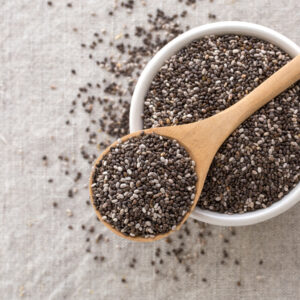In this article, we’ll dive deep into the wonders of apples, exploring their fruits nutrition, fruits calories, potential fruits adverse effects, and even who should avoid eating them. Whether you’re a health enthusiast or just curious about this iconic fruit, read on to discover why “an apple a day keeps the doctor away” might just hold some truth!
Apples: A Nutritional Powerhouse
Apples are more than just a convenient snack—they’re loaded with essential nutrients that make them a standout among fruits. A medium-sized apple (about 182 grams) provides a wealth of fruits nutrition, including:
- Fiber: Approximately 4.4 grams, which is 17% of the daily recommended intake. Fiber supports digestion and promotes a healthy gut.
- Vitamin C: Around 14% of the daily value, acting as an antioxidant to boost immunity and skin health.
- Potassium: About 6% of the daily value, aiding in heart health and blood pressure regulation.
- Antioxidants: Apples are rich in polyphenols, such as quercetin, which combat inflammation and oxidative stress.
With no fat, cholesterol, or sodium, apples are a guilt-free addition to any diet. Their low glycemic index also makes them a great choice for maintaining steady blood sugar levels, proving why apples are celebrated for their fruits health benefits.
Health Benefits of Apples
The saying about apples keeping the doctor away isn’t just folklore—it’s backed by science. Here are some of the top health benefits of apples:
- Supports Heart Health: The soluble fiber in apples, known as pectin, helps lower cholesterol levels. Studies suggest that regular apple consumption may reduce the risk of cardiovascular diseases.
- Aids Weight Management: Thanks to their high fiber and water content, apples promote fullness, making them a satisfying low-calorie snack for those watching their waistline.
- Boosts Brain Function: The antioxidants in apples may protect brain cells from damage, potentially reducing the risk of neurodegenerative diseases like Alzheimer’s.
- Improves Digestive Health: Fiber keeps your digestive system running smoothly, preventing constipation and supporting a healthy microbiome.
- Enhances Immunity: Vitamin C and antioxidants strengthen your body’s defenses against infections and illnesses.
How Many Calories Are in an Apple?
For those counting calories, apples are a fantastic choice. A medium apple contains approximately 95 calories, making it a low-calorie option among fruits. The calorie count can vary slightly depending on size:
- Small apple (149g): ~77 calories
- Medium apple (182g): ~95 calories
- Large apple (223g): ~116 calories
Adverse Effects: Are There Downsides to Eating Apples?
While apples are generally safe and beneficial, there are someadverse effects to consider. Here are a few potential drawbacks:
- Digestive Issues: Eating too many apples, especially with the skin, can lead to bloating or discomfort due to their high fiber content. Moderation is key.
- Allergic Reactions: Though rare, some individuals may experience oral allergy syndrome (OAS), with symptoms like itching or swelling in the mouth, due to cross-reactivity with birch pollen.
- Pesticide Residue: Conventionally grown apples may contain pesticide residues. Opting for organic apples or washing them thoroughly can minimize this risk.
- Dental Concerns: The natural sugars in apples, combined with their acidity, could erode tooth enamel over time if proper oral hygiene isn’t maintained.
Despite these minoradverse effects, apples remain a safe and healthy choice for most people when consumed sensibly.
Who Cannot Eat Fruits Like Apples?
While apples are a fantastic addition to most diets, certain groups should exercise caution or avoid them altogether. Here’s a look at who cannot eat apples:
- People with Fructose Malabsorption: Apples contain fructose, a natural sugar that some individuals can’t digest properly, leading to bloating, diarrhea, or stomach pain.
- Those with Apple Allergies: As mentioned, individuals with birch pollen allergies may react to apples due to OAS.
- Infants Under 6 Months: Babies shouldn’t consume whole apples or apple juice due to their immature digestive systems and the risk of choking.
- People with Certain Dental Issues: Those with sensitive teeth or enamel erosion might find apples’ acidity aggravating.
If you fall into one of these categories, consult a healthcare professional before adding apples to your diet.
How to Enjoy Apples in Your Diet
Apples are incredibly versatile, making them easy to incorporate into your meals. Here are some ideas:
- Raw: Enjoy them as a quick snack with peanut butter for added protein.
- Baked: Try baked apples with cinnamon for a warm, low-calorie dessert.
- Smoothies: Blend apples with spinach and yogurt for a nutrient-packed drink.
- Salads: Add sliced apples to salads for a sweet crunch.







